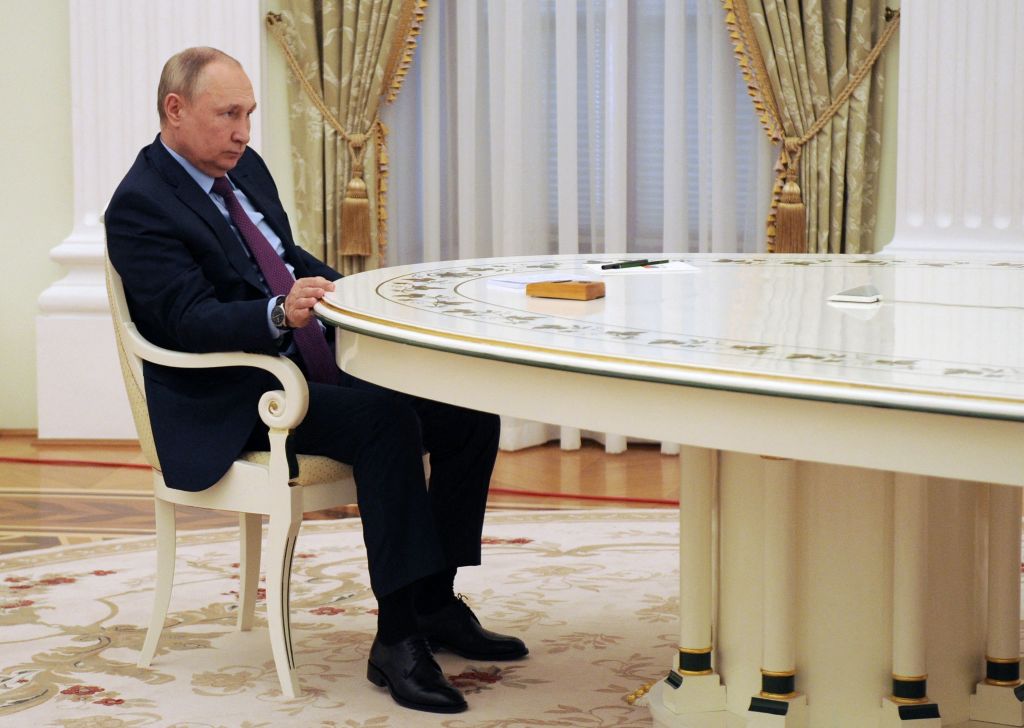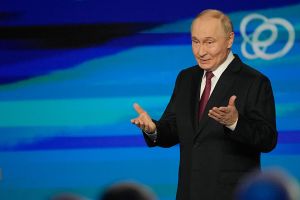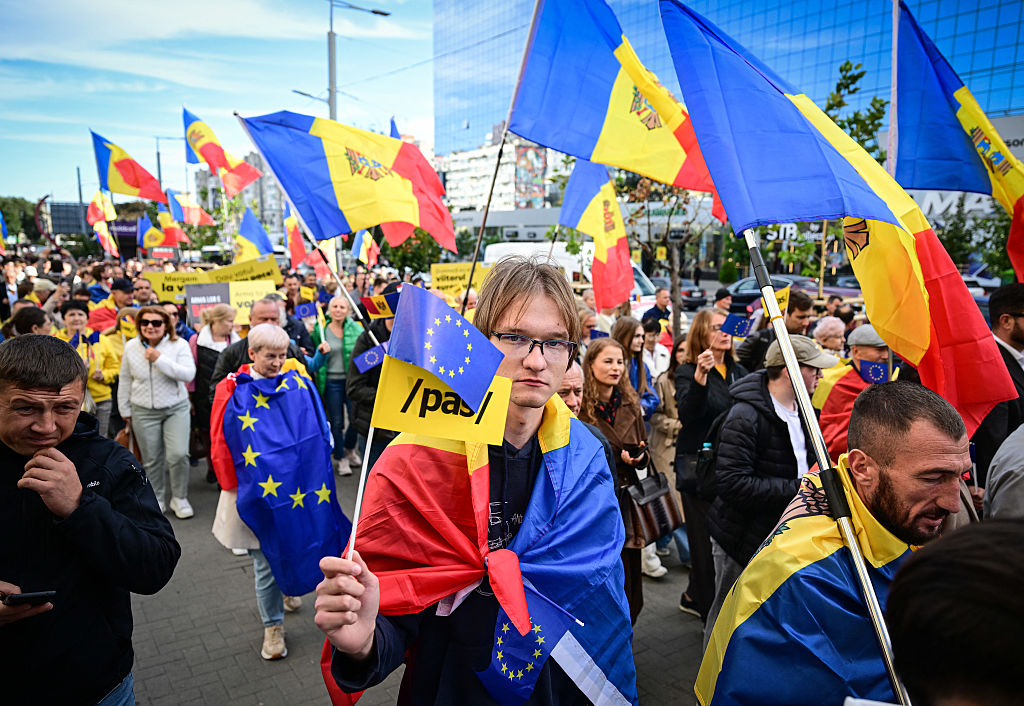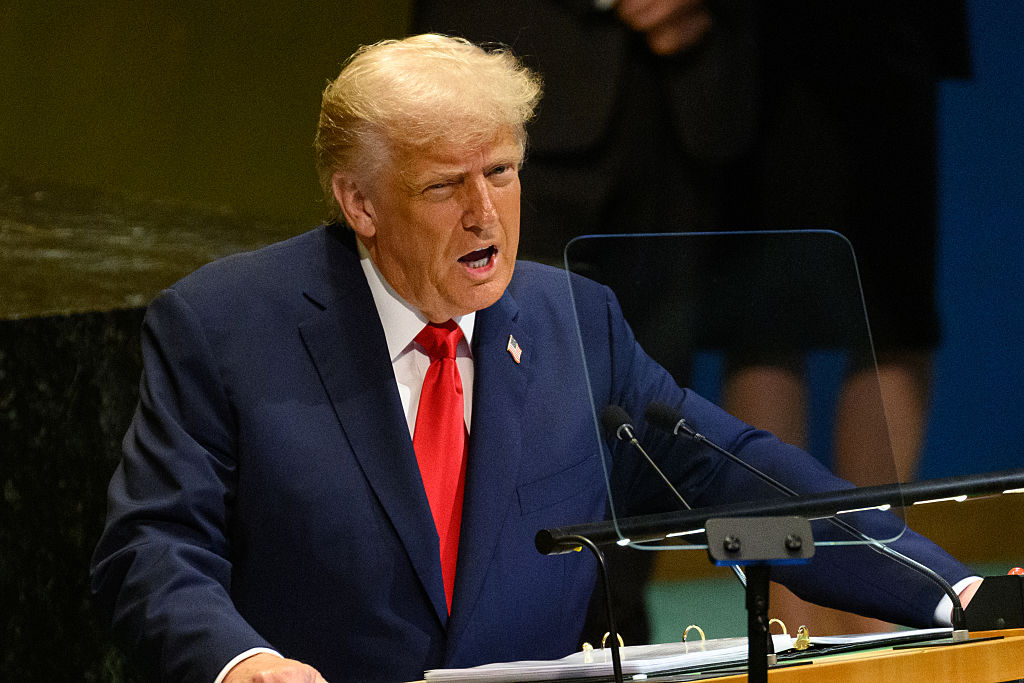The Russian Defense Ministry held a briefing last week claiming that they have discovered US-led biological laboratories in Ukraine. Moscow stated that a rapid halt was brought to the facilities’ activities, adding that Kyiv and Washington had violated the Convention on the Prohibition of Biological and Toxin Weapons. The Kremlin did not feel the need to provide evidence of its claims, par for the course in Putin’s Russia.
Naturally, the Ukrainian Ministry of Health quickly denied the accusations, dismissing them as yet another example of Russia’s use of fake news to justify its illegal military action:
The Ministry of Health denies the reports in the Russian media about the alleged ‘emergency clean-up of the US Department of Defense-funded military-biological program’, and the ‘destruction of hazardous pathogens’ at the Poltava and Kharkiv Centers for Disease Control and Prevention. We emphasize once again that there are no American laboratories on the territory of Ukraine.
Meanwhile, the Ukrainian Center for Counteracting Disinformation at the National Security and Defense Council warned of the increasing danger of Russian propaganda regarding “Pentagon-led biological labs in Ukraine.”
In a PR shift worthy of Orwell’s Oceania, the Kremlin’s sudden terror over biological weapons has quietly replaced the older Russian storyline that called for the “denazification and demilitarization” of Ukraine. That narrative became ludicrously hypocritical after Russian missiles damaged the Babyn Yar Holocaust memorial, built on the site of the largest mass grave of Holocaust victims.
Yet despite the absurd nature of Putin’s latest accusations, they must still be treated with extreme caution. The Kremlin’s past conduct suggests that the louder the complaint, the greater the suggestion of what it might do next. Bombastic Russian warnings over Georgia’s intent to commit “genocide” against Russian citizens — who received their Russian passports just days before Russia’s 2008 invasion — were repeated against Ukraine in both 2014 and this year, with invasions following shortly afterwards.
The accusations, of course, are simply cover. Never mind that countries home to populations and militaries smaller than those of their adversaries do not generally seek out conflict — particularly when their potential enemy is a nuclear-armed power.
White House press secretary Jen Psaki warned that Russia’s idea of a dangerous US-led Ukrainian laboratory could become the pretext for its use of biological or chemical weapons, the release of which would subsequently be blamed on Ukraine. The UK Ministry of Defence echoed this in a Monday statement, saying that “Russia could possibly be planning to use chemical or biological weapons in a ‘false-flag’ operation. Such an operation could take the form of a faked attack, a staged ‘discovery’ of agents or munitions or fabricated evidence of alleged Ukrainian planning to use such weapons. A ‘false-flag’ attack would almost certainly be accompanied by extensive disinformation to complicate attribution.”
Kyiv authorities already believe the Russians are considering blowing up an ammonia storage facility in the Kharkiv region — a credible concern given a January 14 leak of ammonia gas in the Russian-occupied Donetsk oblast.
Russia’s floundering war effort certainly suggests that the Kremlin could prove desperate enough to use biochemical weapons. Moscow’s attempts to encourage Syrian fighters to join Russian forces suggest that, as a wartime leader, Putin is proving to be more of a Czar Nicholas II than a Peter the Great.
It is hard to credit that soldiers from the Middle East will be more successful where Russia’s own forces have failed. The perceived wisdom of sending Syrians to fight in freezing conditions alongside demoralized Russian troops in a war that they are not likely to understand is something of an affront to military science.
Yet it is not solely Putin casting what could charitably be described as a wide military recruitment net that peripherally raises the risk of a chemical weapon being unleashed. Ukrainian civilians are not only dying from indiscriminate artillery fire, but are now being deliberately targeted, with Kyiv authorities claiming to have intercepted communications confirming the new terror policy.
Logic suggests that an army barbaric enough to ignore the rules of war will not much care what weapons it uses in its campaign — least of all when President Biden declares that “every inch” of NATO territory will be defended, but that he will not send American troops into Ukraine.
If Putin perceives this as carte blanche to do with Ukraine as he pleases, on the sole condition that NATO countries are left alone, it’s entirely possible that he will escalate his campaign.
Use of chemical weapons by the Syrian authorities provoked a military response from the United States. But Bashar al-Assad does not possess nuclear weapons, nor did he receive a White House promise that American troops would stay out of his enemy’s country.
Putin has both the weapons and the pledge, and the barrage of Western sanctions has demonstrably failed to halt his invasion.
With thousands dead and more than 2.6 million Ukrainian refugees, it would be consistent with the Kremlin’s disregard for the sanctity of human life to progress to violations of the Chemical Weapons Convention. As sanctions fail to halt the war, as American leaders refrain from other forms of potential deterrence, the notion that the horrors of the ongoing conflict will expand to include the appalling effects of biochemical weapons cannot be discounted.

























